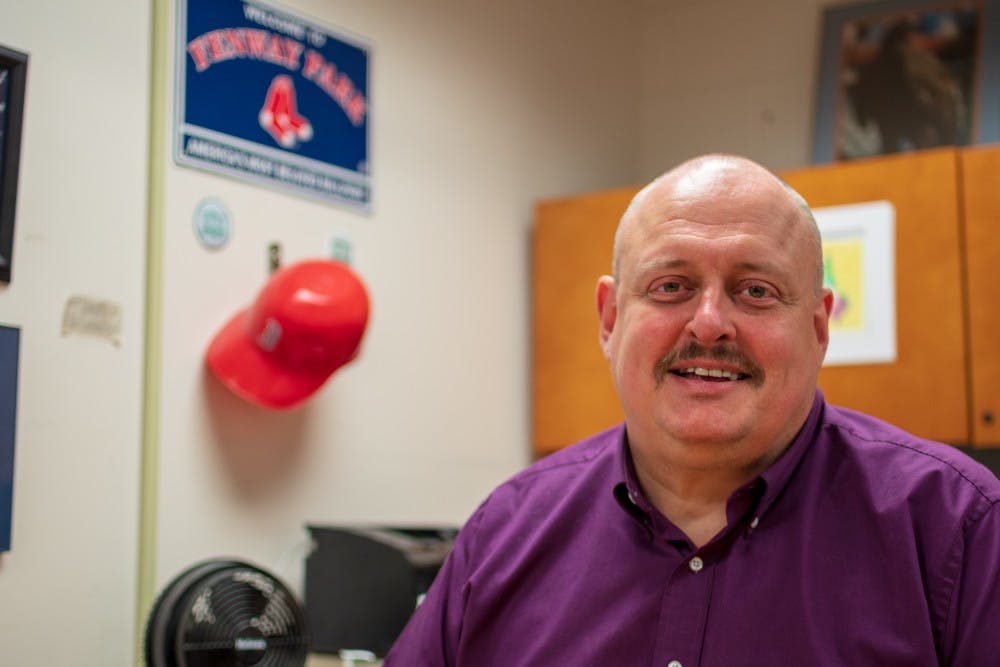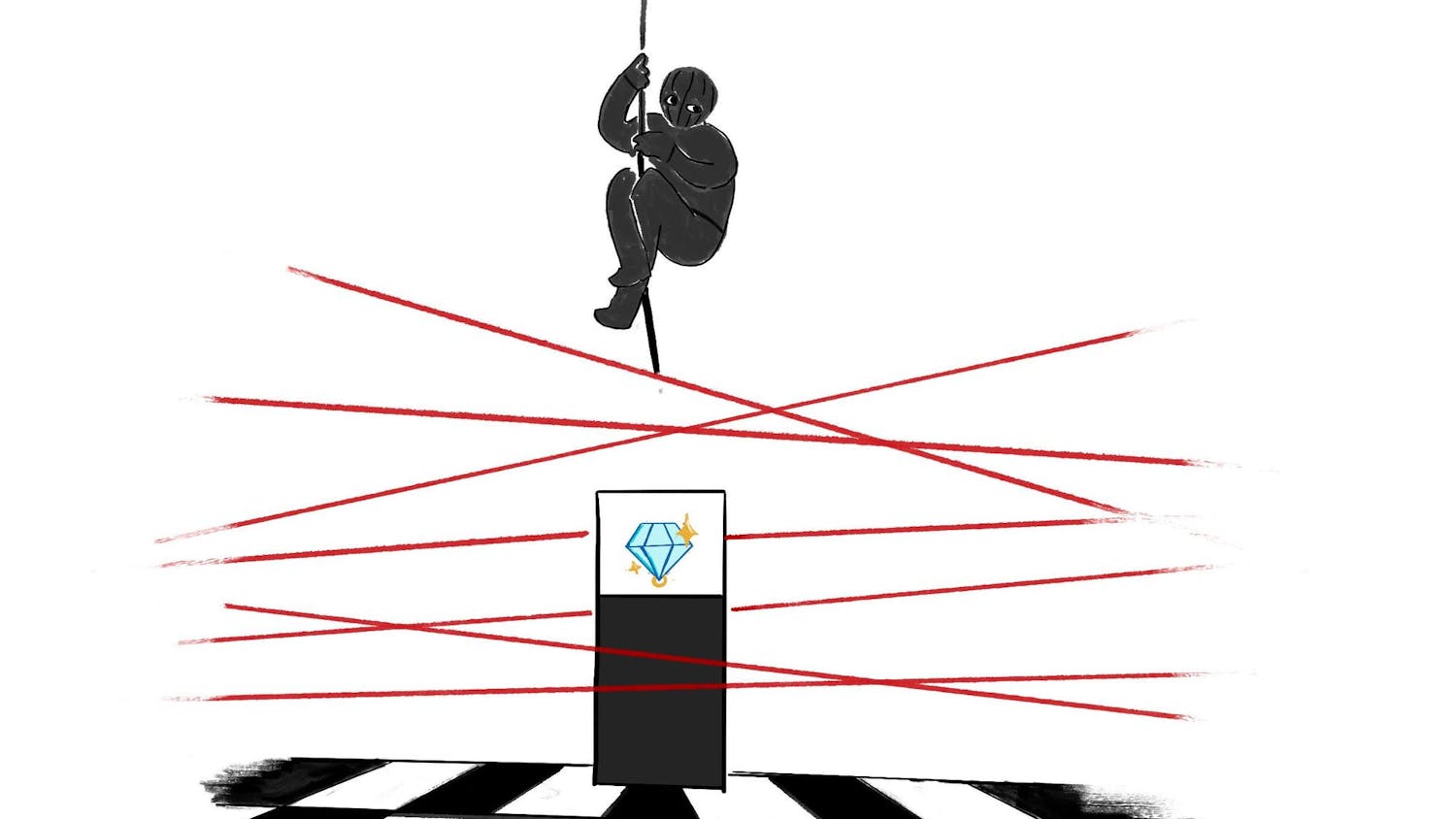When Steven Guice was 7 years old, he started to learn sign language. There was a deaf family at the church his family attended. He didn’t need it for himself; he just wanted to make a friend.
Guice, accommodation specialist and interpretive coordinator for the Office of Accessibility at Auburn University, has been an Auburn fan his entire life. He even joked that his first words were “War Eagle.” Sign language has always been a part of his life, too, but he never thought it would get him a job at the University he has loved his entire life.
“I only started learning sign language so I could communicate with my friend and so I could perform at church,” he said. “I never dreamed in my wildest dreams that I could make a living as an interpreter and that God had this planned for me.”
When he was young, Guice taught his classmates how to sign so they could speak through sign language during class without the teacher catching them. Guice and his friends did this for years, so he was always practicing sign.
However, when he was a teenager, Guice did not practice sign language for two years. It is important to keep practicing the signs, but because Guice did not sign for such a long time, he almost lost his fluency.
“God got my attention real quick, so I went to a refresher course and picked it right back up,” Guice said. “The rest is history.”
Guice never thought he would become an interpreter. Throughout his life, the people around him supported him and told him that he had a gift to sign. He also believes that God had opened many doors, which led him to where he is now.
“Did I choose to be an interpreter?” he asked rhetorically. “No, but God chose to give me the gift of interpreting. Yes, I have taken classes, but it is truly a gift.”
Guice said that he loves singing, especially in the church choir, and his favorite place to interpret is at the church. He believes that this is an excellent way for him to worship.
He started interpreting at church and then went to seminary school after college. During his last year of seminary school, he was offered a job as an interpreter at a church in Arlington, Texas.
He eventually moved back to Alabama and became a contract interpreter at the Alabama School for the Deaf. He was also asked to be the contract interpreter for his hometown of Gadsden, Alabama.
His job as the contract interpreter for Gadsden and his position as the interpreter at his home church crossed at one point. Guice was called to help the police with a problem with a couple late at night, and the couple just happened to go to his home church.
In 1999, Guice was asked to become the interpretive coordinator for the University he had always loved. But the decision wasn’t automatic.
Guice admitted that he deleted the email because he believed that he didn’t have the time and that he wasn’t good enough to become the interpretive coordinator at Auburn. He avoided the situation until a woman he worked for handed him a hard copy of the email he deleted. His mother and his wife both urged him to take on the job until he eventually did.
He said the funny part about the whole situation was that two years prior, he was at an Auburn football game and saw an interpreter for a player on the opposing team.
“I made a comment, ‘What if Auburn had a deaf football player and called me to be their interpreter?’” he said. “We all laughed about it. I never dreamed that in two years I would be where I have always wanted to be.”
As an interpreter, Guice has interpreted for many events and celebrities. Some of the most memorable for Guice include artist Maya Angelou, former President George W. Bush, sex therapist Ruth Westheimer, comedian Jeff Dunham and former Russian President Mikhail Gorbachev.
When Maya Angelou came to Auburn, she came to speak to Guice privately before the event.
“She had a very commanding presence, and yet, sitting down with her, it was like talking with my grandmother,” Guice recalled. “She was an awesome, sweet lady. We spoke for maybe 10 minutes, and I just ate it up. After the event, she actually came up and shook my hand.”
The Russian president was another interesting person for him to interpret since he had to wait for what the president said to be interpreted into English in order for him to sign the speech.
Guice said that interpreting for Westheimer, the sex therapist, was very interesting.
“I went up and asked her if she wanted finger spelling or the signs,” Guice said. “Well, she said she wanted the signs. So I was like, ‘Oh, okay...’ Of course, for the first part of the event, all eyes were on me.”
For Guice, the funniest person he interpreted for was comedian and ventriloquist Jeff Dunham. During his act, one of Dunham’s puppets, Peanut, called Guice out.
“Peanut got me in the act,” Guice said. “He just all of a sudden said, ‘Oh look, a signer.’ So, I’m trying to keep a straight face, but he kept cracking me up. Then, I turned around and started to play with it. It was really funny.”
Interpreting for former president George W. Bush was a huge honor for Guice. However, he was not told about a marksman positioned at the corner of Jordan-Hare Stadium facing the stage that Guice and the president were on. He said that at first, he was terrified, but then he realized the marksman was there for protection.
Overall, Guice believes that the best part of the job is when he sees how much he has helped a student succeed at Auburn.
“My favorite part is when I see students I worked with for years walk across that stage and get a degree,” he said. “That’s why I do what I do. I feel that I stay young by staying around college students every day; they make me feel young.”
He also loves being around all the students, faculty and staff that he has encountered at Auburn.
“It is always said that we are the Auburn Family,” he said. “Only at Auburn, there is the Family. You don’t get it until you either come to school here or work here.”
Guice believes that one of the most important things about his job is the relationships, including those with students, their parents, faculty and staff.
“This is what life is about,” Guice said. “It’s about the most important word in the English language. Some people say it’s love. Others say success. And some people say money. All of those are good, but you can’t have any of those without relationships. If it weren’t for relationships, life would be really boring.”
Do you like this story? The Plainsman doesn't accept money from tuition or student fees, and we don't charge a subscription fee. But you can donate to support The Plainsman.





